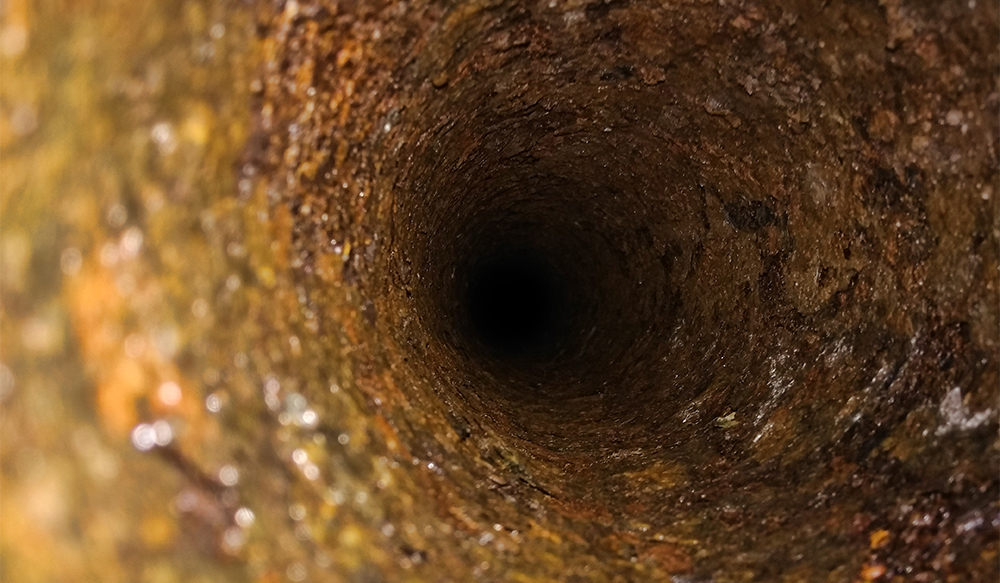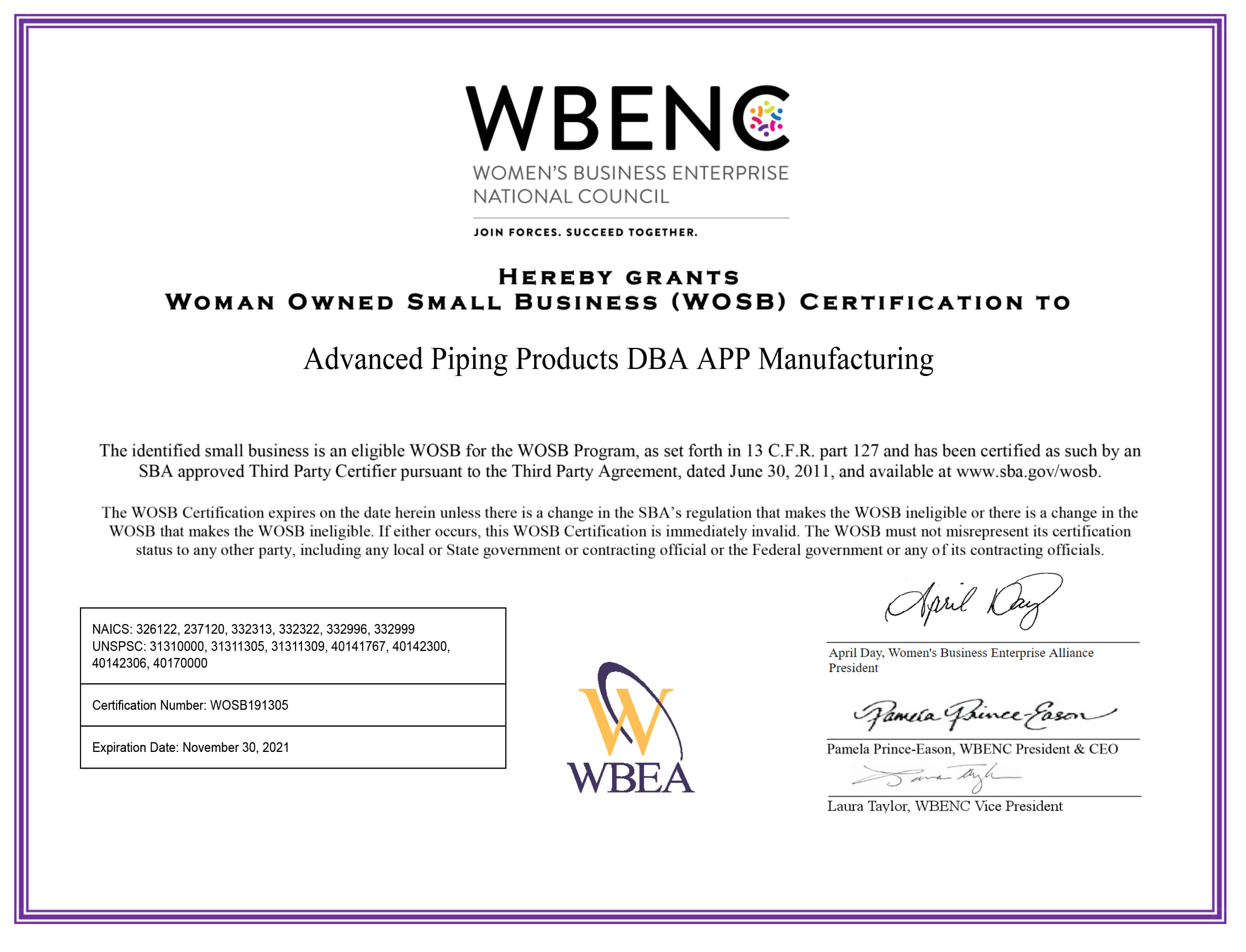
If your business relies on a sturdy piping system, the sight of rust is terrifying. Rusting pipes are a red flag for corrosion, and they’re evidence that your pipes are crumbling in front of you.
However, you don’t have to sit back and watch your pipes, and your whole piping system, fall apart. There are five ways to avoid rusting pipes and keep your pipes strong.
What Causes Rust?
Rust forms when iron combines with oxygen. Together, the pair make up iron oxide, which is bad news for metals. The combination is problematic because oxygen has the power to set iron electrons free. When those electrons flee, it weakens the metal, leaving behind the discolored, crumbly substance we know as rust.
But you may be wondering, “Why doesn’t all iron immediately rust when it’s left in the open air?”
For oxidation to take place, oxygen needs a bridge, or an electrolyte. In many cases, this is water or a grimy material. Worse yet, liquids laced with chemical compounds, such as salt water or acid rain, work as supercharged electrolytes. With a proper electrolyte in place, electrons—set free by oxygen—flow into surrounding materials.
In the case of galvanic corrosion, those electrons will move into another metal. In other cases, they will simply move to a less vulnerable area in the original piece of iron. Either way, they result in rust.
How Can I Avoid Rusting Pipes?
By understanding what causes rust, you’ll have the basic know-how to prevent it. But we have some expert tips that will help you stop rust from starting. Here’s how we suggest you keep your pipes from rusting:
1. Clean and Dry Surfaces Regularly
Remember, for oxygen to cause problems, it needs a bridge. That’s why keeping pipes clean and dry stops rust. By maintaining clean and dry surfaces, you minimize exposure to those supercharged electrolytes that speed up the corrosion process.
Here are some ways to keep moisture and grime from causing rust in pipes:
- Add waterproofing or coatings that are water-resistant.
- Add drainage or weep holes to stop water from pooling.
- Add sealants to keep corrosive elements from slipping into openings.
2. Protect Pipes from Scratches
Scratches and gashes expose bare iron to oxidation. You can prevent scratched surfaces by reducing friction. There are many pipe supports you can add to your system that cushion pipes and keep their outer surfaces safe. For instance, wear pads, flat plates, and slide plates are all designed to keep pipes from wearing down and corroding.
3. Reinforce Metals
The physical makeup of the metal you’re using dictates how likely it is to rust. Some metals give away electrons, and rust, more easily than others.
For instance, stainless steel is rust-resistant because it contains chromium. Therefore, a simple way to prevent rust is to use stainless steel whenever it’s possible.
However, if stainless steel isn’t an option, you can add layers of reinforcement to more basic metals. Here’s how:
- Zinc plating: By adding a layer of zinc to metal surfaces, you can add rustproof protection to basic metals.
- Hot-dip galvanizing: Hot-dip galvanizing also reinforces metals by adding zinc. However, it penetrates deeper than zinc plating—making it a better choice for outdoor applications.
4. Conduct Regular Maintenance
Rust can spread like wildfire once it starts. Regular maintenance can keep rust from running wild. Of course, it’s important to keep an eye out for discoloration or leaks. At the same time, remember to regularly maintain the pipe supports that are protecting your pipes.
Here are some early signs that your supports are underperforming:
- Your system is losing heat or energy.
- You hear excessive noise.
- You notice sagging pipes.
It’s always better to take a proactive approach to maintaining your piping system. By actively looking for early signs of corrosion, you can nip rust in the bud and keep your pipes rust-free.
5. Insulate Pipes
When metal pipes rub against surrounding metal objects, it can cause rust in two ways. First, connecting dissimilar metals can cause galvanic corrosion, which is an electrochemical reaction that results in rust. Second, metals from supports or I-beams can scrape off the outer layer of your pipes, giving corrosive materials a chance to seep in.
You can stop metal-on-metal rust from forming by adding insulation. For instance, pre-insulated pipe shoes include nonmetallic linings that stand between your pipes and surrounding metal objects. Similarly, composite pipe shoes use a completely nonmetallic, and rustproof, body to lift pipes off support beams. Regardless of the type of pipe support you use, insulating pipes can help stop rust from starting.
Find the Best Protection for Your Pipes
Piping systems come in all shapes and sizes, and so do the products that support them best. Want to find the best protection for your piping system? Read our Complete Guide to Pipe Shoes and learn what supports you need to stop corrosion and boost the longevity of your piping system.






